
5 Essential Tips for New Investors in Dubai Real Estate
Sep 18, 2024
9 minutes read
Dubai's real estate market stands as a beacon of opportunity for investors from around the globe. Dubai's stunning skyline, tax-free advantages, and thriving economy consistently attract savvy investors seeking lucrative returns. However, navigating this dynamic and ever-evolving market requires careful planning, deep insight, and a strategic approach. This comprehensive guide provides five essential tips for new investors looking to make their mark in Dubai's thriving real estate scene.
1. Understand the Market Dynamics
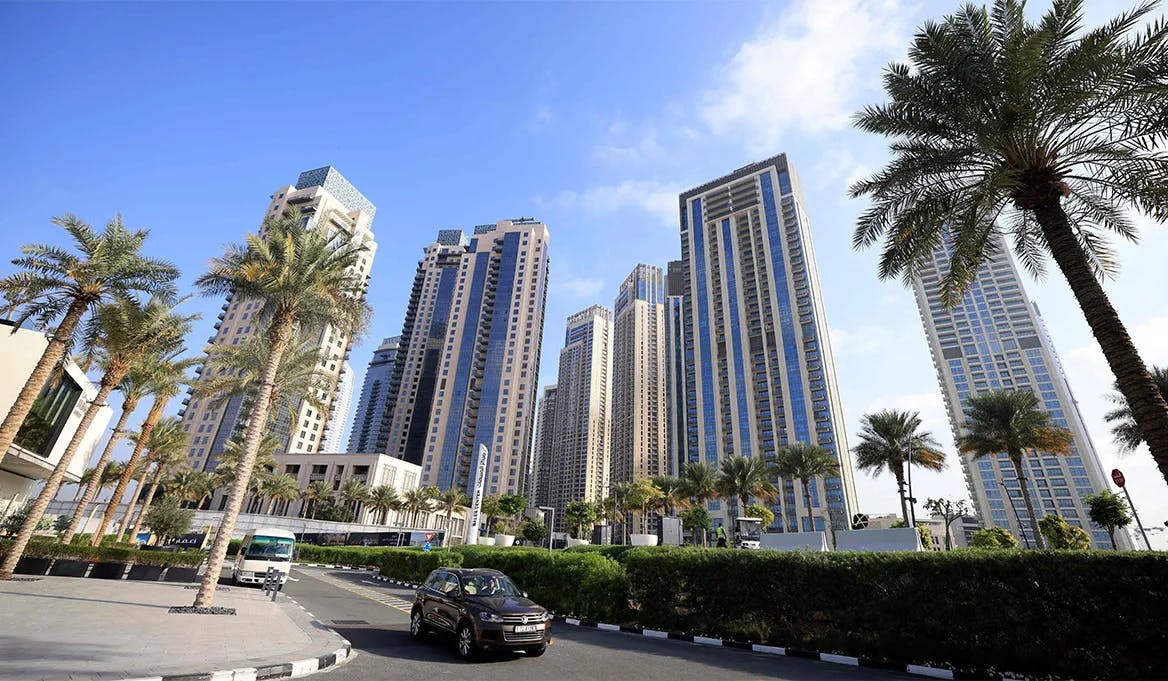
Image Credit: economist.com
Ø Current Trends
Dubai's property market has become a beacon of resilience and growth, making it a top investment hotspot. Positioned at the crossroads of Europe, Asia, and Africa, the city combines strategic location with world-class infrastructure and business-friendly policies. This unique blend of advantages fuels its ongoing success and appeal.
Ø Key Factors Influencing the Market
Dubai’s real estate scene thrives on key factors: the emirate’s drive for economic diversification opens fresh investment avenues, while the legacy of Expo 2020, which highlighted its innovation and global reach, continues to spark interest and development across the city.
Ø Government Initiatives
Government initiatives aimed at attracting foreign investment have further bolstered the real estate sector. These include long-term visas for property investors, relaxed regulations for foreign ownership, and streamlined processes for business setup. Such measures have not only enhanced Dubai's appeal to international investors but also fostered a more stable and sustainable property market.
Ø Technological Advancements
Technological advancements in property management and smart city initiatives have revolutionized the way real estate is bought, sold, and managed in Dubai. From Blockchain-based property transactions to AI-powered facility management systems, these innovations are reshaping the industry and creating new opportunities for forward-thinking investors.
Ø Market Cycles
Like any real estate market, Dubai experiences cycles of growth and correction. Understanding these patterns is crucial for making informed investment decisions and maximizing returns. Historically, Dubai's property market has shown periods of rapid appreciation followed by consolidation phases. Savvy investors see market cycles as golden opportunities—buying up properties during downturns and seizing peak moments to cash in on gains.
2. Choose the Right Location
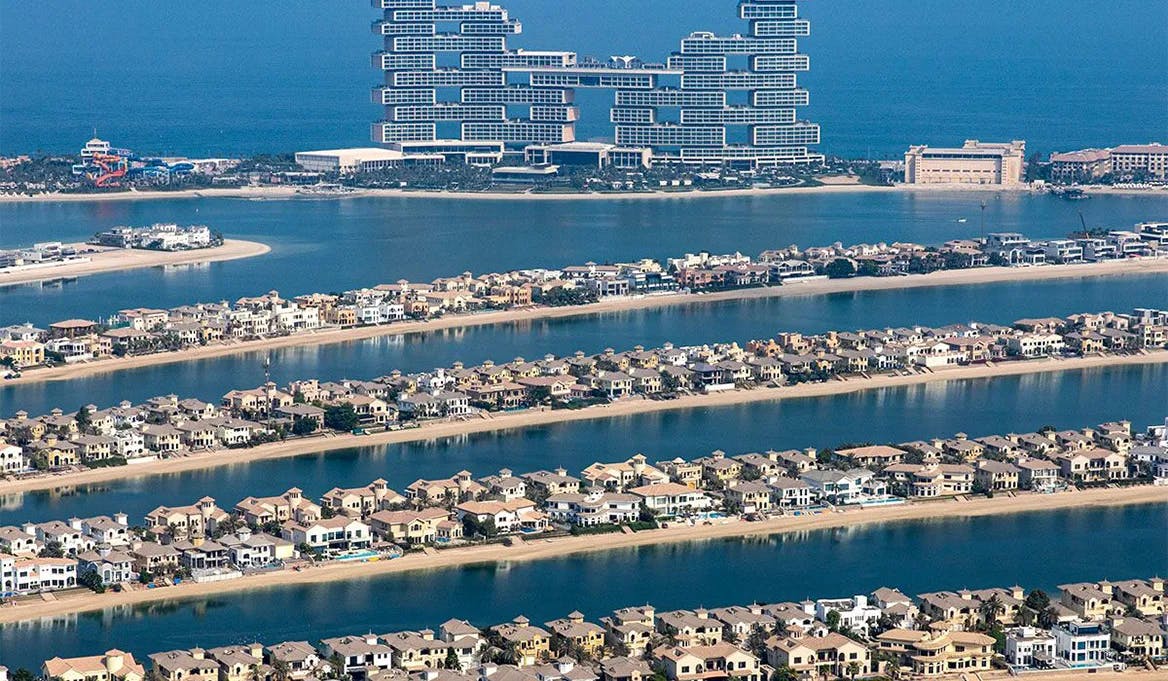
Image Credit: bloomberg.com
Ø Prime Areas
Dubai offers a diverse array of neighborhoods, each with its own unique characteristics and investment potential. Downtown Dubai, often referred to as the city's beating heart, epitomizes luxury and prestige. Home to iconic structures like the Burj Khalifa and Dubai Mall, this area consistently attracts high-net-worth individuals and commands premium prices.
Ø Dubai Marina
Dubai Marina, with its stunning waterfront setting and high-rise apartments, appeals to those seeking a cosmopolitan lifestyle. The area's walkability, abundance of dining and entertainment options, and proximity to the beach make it a perennial favorite among both residents and investors.
Ø Palm Jumeirah
The Palm Jumeirah, an engineering marvel, offers exclusive villas and beachfront properties that cater to the ultra-luxury segment. Its unique palm-tree shape and private beaches provide residents with unparalleled views and a sense of exclusivity that few other locations can match.
Ø Emerging Hotspots
While classic areas hold steady, astute investors are eyeing emerging hotspots with huge growth potential. Dubai South, near the new Al Maktoum International Airport and the old Expo 2020 site, is set to soar. As this area blossoms, early investors could reap substantial rewards from rising property values and rental yields.
Ø Mohammad Bin Rashid City
Mohammad Bin Rashid City is more than just a development—it's a future city in the making. This expansive, mixed-use project seamlessly combines residential, commercial, and recreational spaces into one dynamic community. As it takes shape, it promises a wealth of investment opportunities across a range of property types, making it a prime spot for forward-thinking investors.
Ø Jumeirah Village Circle
Jumeirah Village Circle has gained traction as an affordable, family-friendly community. Its central location, coupled with ongoing infrastructure improvements and new amenities, makes it an attractive option for both end-users and investors seeking steady rental income.
Factors to Consider
When scouting for investment locations, focus on the essentials: proximity to top-notch schools, healthcare, shopping, and public transport can make a property highly desirable and boost its value. Keep an eye on future development plans—new infrastructure and commercial projects could signal a major rise in property appreciation, turning today’s insights into tomorrow’s profits.
Rental Yields and Capital Appreciation
Rental yields and historical capital appreciation trends should also be carefully analyzed. While some areas may offer higher rental returns, others might provide better long-term capital growth. The ideal investment location often strikes a balance between these factors, aligning with the investor's specific goals and risk tolerance.
3. Navigate Legal and Regulatory Requirements
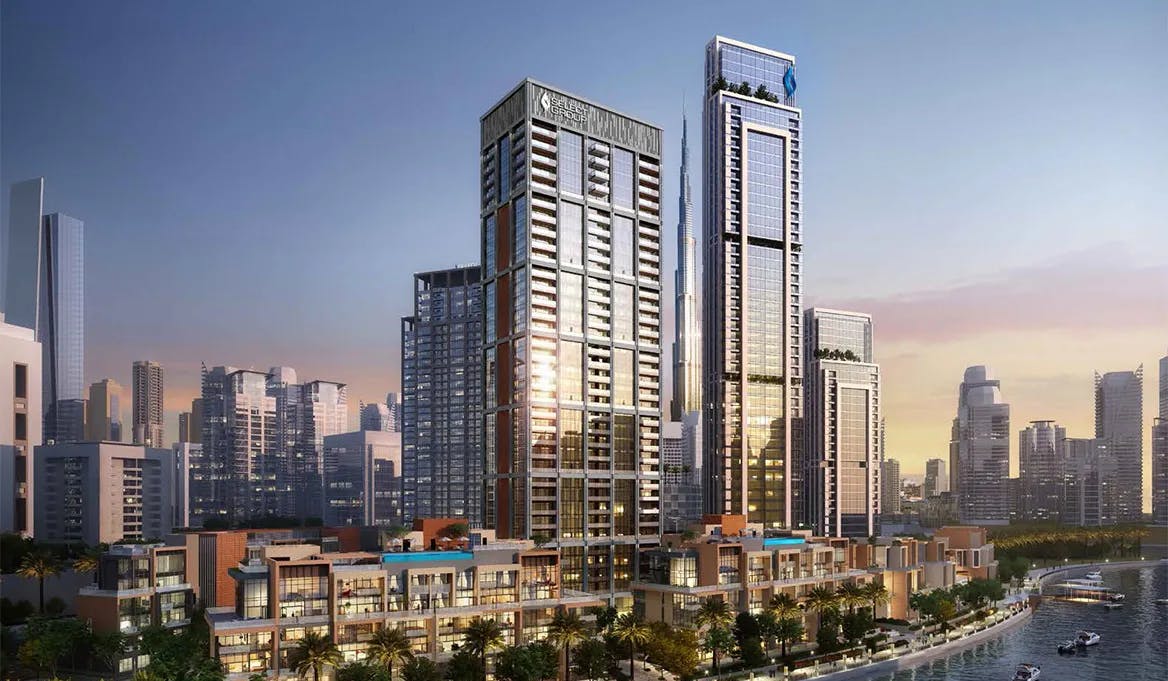
Image Credit: Bayut
Ø Ownership Structures
Dubai offers various ownership structures for foreign investors, each with its own set of rights and considerations. Freehold ownership, available in designated areas, grants full ownership rights to foreign investors, including the ability to sell, lease, or develop the property as desired. This option provides the highest degree of flexibility and control over the investment.
Ø Leasehold and Usufruct Rights
Leasehold arrangements typically involve long-term lease agreements, often spanning 99 years. While not offering full ownership, these structures can provide attractive investment opportunities, particularly in areas where freehold ownership is not available to foreign investors.
Usufruct rights grant investors the ability to use and benefit from a property for a specific period, usually 50 to 99 years. This option can be particularly attractive for commercial properties or development projects with a defined investment horizon.
Ø Key Regulations
Navigating Dubai's real estate regulations requires a thorough understanding of the legal framework governing property transactions and ownership. The Real Estate Regulatory Agency (RERA) plays a crucial role in regulating the market and protecting investors' interests. Familiarizing oneself with RERA guidelines is essential for any serious investor in Dubai's property market.
Ø Off-Plan Property Regulations
In Dubai, buying off-plan properties is a smart investment move, backed by regulations to safeguard buyers. These include escrow accounts, payment plans tied to construction progress, and strict developer registration rules, all designed to ensure your investment is secure and projects are completed as promised.
Ø Rental Laws
Rental laws and tenancy contracts in Dubai are designed to balance the rights of landlords and tenants. Understanding these regulations is crucial for investors planning to generate rental income from their properties. Key aspects include rent increase restrictions, eviction procedures, and maintenance responsibilities.
Ø Required Documentation
For a seamless investment experience, having your documentation in check is key. Foreign investors should ensure they have a valid passport and the right visa status. Sometimes, you might also need a No Objection Certificate (NOC) from your sponsor to complete the process smoothly.
Ø Proof of Funds
Proof of funds is another critical requirement, as it demonstrates the investor's ability to complete the transaction. This may include bank statements, investment portfolios, or other financial documentation.
4. Explore Financing Options

Image Credit: financeshed.net
Ø Mortgage Landscape
Dubai’s robust financial sector offers a variety of mortgage options to suit different investor needs. Fixed-rate mortgages, for instance, provide stability by locking in interest rates for a set period, making them an appealing choice, especially when rates are on the rise.
Ø Variable-Rate Mortgages
Variable-rate mortgages, tied to a benchmark rate such as EIBOR (Emirates Interbank Offered Rate), offer the potential for lower initial payments but come with the risk of rate fluctuations over time. These products may appeal to investors comfortable with some degree of interest rate risk.
Ø Islamic Financing
Islamic financing options, structured to comply with Sharia law, are also widely available in Dubai. These products, such as Ijara or Murabaha, provide alternatives for investors seeking faith-compliant financing solutions.
Ø Eligibility Criteria
When evaluating mortgage applications, Dubai lenders closely scrutinize several factors. A solid credit history is essential, often requiring a minimum credit score or a spotless record. Income stability also plays a crucial role, with banks favoring applicants who demonstrate steady and reliable income.
Ø Debt-to-Income Ratio
The debt-to-income ratio, which compares an applicant's monthly debt obligations to their income, is a critical metric used by lenders to assess affordability. Most banks in Dubai cap this ratio at around 50%, including the proposed mortgage payment.
Ø Down Payment Requirements
Investors should be prepared for substantial down payment requirements when financing property purchases in Dubai. For properties valued under AED 5 million, a minimum down payment of 25% is typically required. This increases to 35% for properties over AED 5 million.
Ø Higher Requirements for Investment Properties
Higher down payments are often required for second homes or investment properties, reflecting the increased risk associated with these types of purchases. Some lenders may require down payments of 40% or more for such properties.
5. Conduct Thorough Due Diligence
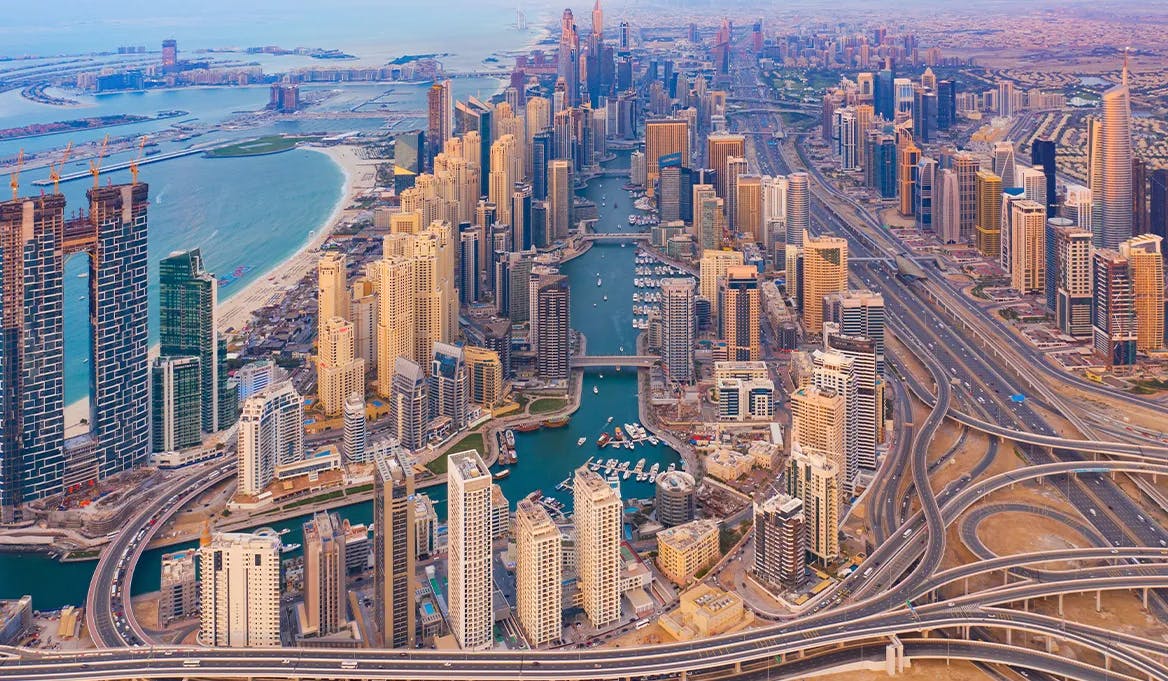
Ø Property Inspection
Before finalizing any property purchase, a comprehensive inspection is essential. Engaging a professional inspector can reveal potential issues that may not be immediately apparent, such as structural problems, electrical or plumbing deficiencies, or hidden maintenance needs.
Ø Off-Plan Property Review
For off-plan properties, carefully reviewing building plans and specifications is crucial. This includes assessing the quality of materials to be used, understanding the proposed layout, and verifying that all promised amenities are included in the final design.
Ø Developer Track Record
The reputation and track record of the property developer play a significant role in the success of a real estate investment. Researching the developer's history of completed projects, including their quality and timely delivery, can provide valuable insights into their reliability and the potential risks associated with the investment.
Ø Financial Stability Assessment
Evaluating the developer's financial stability and funding sources for ongoing projects is also crucial, particularly for off-plan purchases. This can help mitigate the risk of project delays or, in worst-case scenarios, project abandonment.
Ø Market Analysis
Conducting a comprehensive market analysis is essential for making informed investment decisions. This includes studying historical price trends in the chosen area, understanding current and projected rental yields, and assessing the potential for capital appreciation.
Ø Future Development Considerations
Factors such as upcoming infrastructure projects, changes in zoning regulations, or planned commercial developments can significantly impact property values and should be considered in the analysis.
Ø Legal Verification
Verifying all legal aspects of the property is a critical step in the due diligence process. This includes confirming the property's ownership status, checking for any encumbrances or liens, and ensuring compliance with all relevant zoning and building regulations.
Ø Off-Plan Legal Checks
For off-plan properties, verifying that all necessary permits and approvals are in place is essential. This includes checking the project's registration with RERA and confirming the existence of an escrow account for the development.
Navigating Dubai's Real Estate Landscape
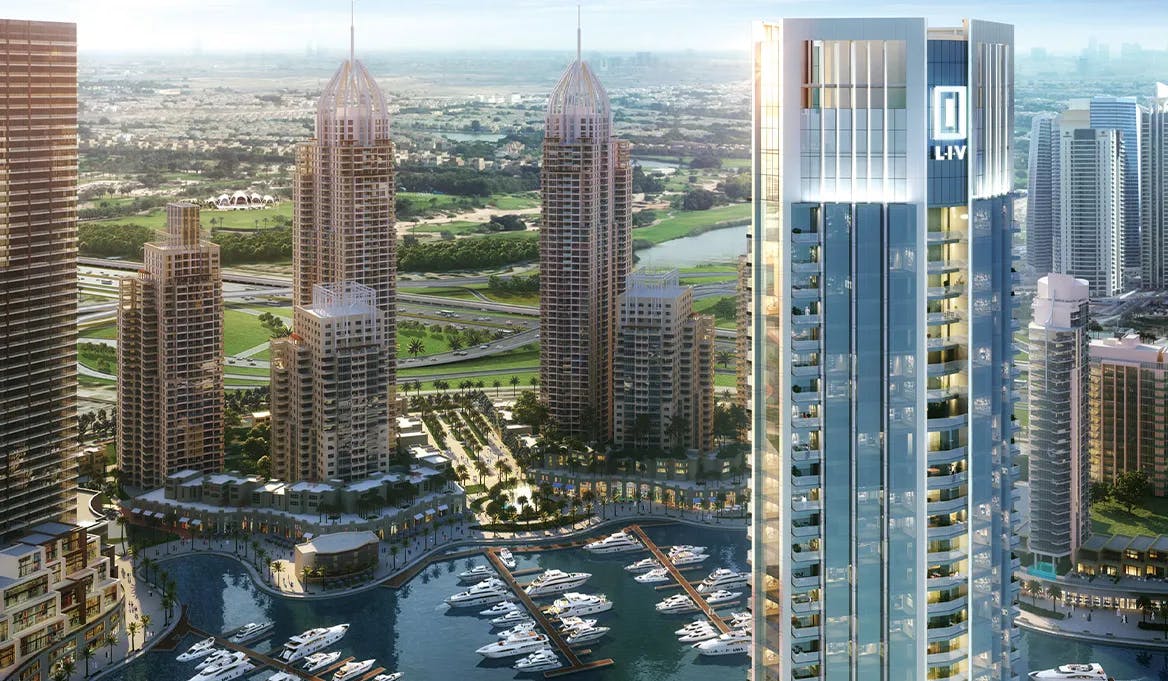
Image Credit: Bayut
Opportunities in Dubai Real Estate
Investing in Dubai's real estate offers thrilling opportunities for those who approach it with care and insight. By grasping market trends, selecting prime locations, handling legalities, exploring financing, and performing due diligence, investors can thrive in this dynamic market. Real estate investment in Dubai carries risks and can be volatile. To succeed, stay updated on economic trends, regulatory changes, and market shifts. Consulting with seasoned professionals—legal advisors, financial experts, and trusted agents—can provide valuable guidance.
By following key tips and staying updated on market trends, new investors can confidently navigate Dubai's property scene. Though challenges may come, careful planning, thorough research, and a long-term view can lead to substantial rewards in this vibrant market.
Ready to Dive into Dubai Real Estate?
Explore Investment Opportunities: Discover the hottest property hotspots and emerging trends in Dubai’s real estate market. Contact Us to learn more.



